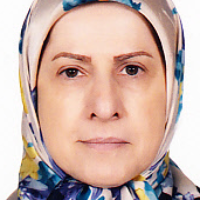Middle Eastern Elites, the Subjects of the Eurocentric International Order
Author(s):
Article Type:
Research/Original Article (دارای رتبه معتبر)
Abstract:
During the last two centuries, particularly in the post-World War II period, many former colonies in the Middle East have gained independence. However, there is a growing gap between countries—dichotomized into different groups in the international system such as Developed or Undeveloped, North or South, First World or Third World, Center or Periphery, West or East, and so on. The Middle East or ‘the Islamic East’ is one of the regions which have been suffering from either drastic backwardness or dependent development. In postcolonial discourse, the epistemological agency of the non-European world is revived and the one-sided narration of westerners about the whole world is not the only source of knowledge. Intellectual and political elites of the newly independent societies as ‘nationalist and anticolonialist subjects’ entered into battle in order to change the subordinate position of these countries in the international order and find ways to overcome the problem of underdevelopment and dependence on the western countries, but these so-called ‘Middle Easterners subjects’ as referred to in this paper were unable to be independent subjects and actually became subjected to the influence of the external forces. Most Middle Eastern intellectual and political elites had to change their attitudes and activities due to eurocentrism, especially in the area of foreign policy and international relations. As the subjects of the Eurocentric international order, they unconsciously cooperated with the forces which intended to maintain the existing international order, despite the fact that they were initially trying to change this superior-subordinate arrangement in protest against its unequal nature. The so-called subjectivity of these elites has led to an even expanding backwardness in many parts of the region.The authors’ main objective is to answer the following research questions: 1. How have the postcolonial discourses, which have originated from the Eurocentric international order been reinforced? 2. Why were the anti-colonial elites of the Middle East ultimately influenced by the Eurocentric view in spite of their initial opposition to eurocentrism? In the research hypothesis, it is argued that the worldview of eurocentrism of the Middle Eastern elites and intellectuals have acted as positive reinforces of the Eurocentrism perspective and orientation in the Middle Eastern countries. To answer these questions, they use the framework of the theories of post-colonialism, and draw conclusions from Spivak's discussions of the subalterns and domination, Edward Said's writings on the subject of Orientalism, and the discourse of the elites of the so-called Islamic East who had struggled to confront the challenge of backwardness of their countries during the 1960-1970 period. The findings of the research showed that even some of the staunchest anti-colonial political elites and intellectuals—in spite of their rebellion against imperial powers and critical views of the Eurocentric attitudes of the westerners—ended up as the subjects of the European-dominated international order. Such results are valuable for understanding the persistent backwardness of countries in the Middle East which are confronted with this challenge in different ways and varying degrees of severity.
Keywords:
Language:
Persian
Published:
Political Quartely, Volume:53 Issue: 3, 2023
Pages:
519 to 540
https://magiran.com/p2701784
سامانه نویسندگان
مقالات دیگری از این نویسنده (گان)
-
The Constructed Image of Iran in Central Asia in the Second Half of the Nineteenth Century
*, Mohammadkazem Shojaee
Central Eurasia Studies, -
America's Exploitation of Color Revolutions in Relations with Russia
*, Fatemeh Erfani
Bioquarterly Journal of Revolution Studies,



